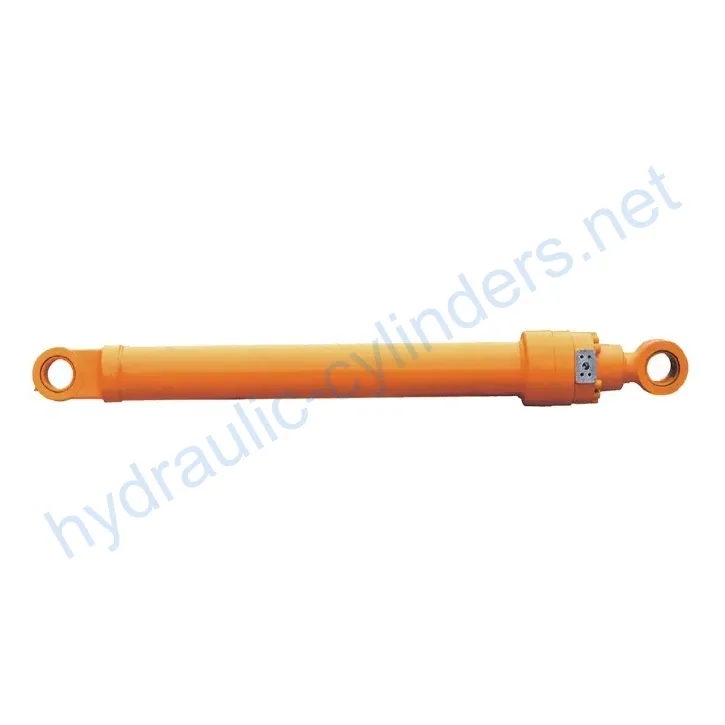Boom Cylinder For Caterpillar Large Excavator E336DL
Boom Cylinder For Caterpillar Large Excavator E336DL
Understanding the Boom Cylinder
The boom cylinder is a vital component in the hydraulic system of heavy machinery, particularly in excavators like the Caterpillar E336DL. This hydraulic cylinder is specifically designed to control the movement of the boom, which is responsible for lifting, lowering, and tilting the bucket. It enables efficient material handling tasks in construction and other industrial applications. The operation of the boom cylinder is primarily based on hydraulic principles, where pressurized fluid is used to create motion. This not only enhances the effectiveness of the equipment but also ensures smooth and precise control during operations.
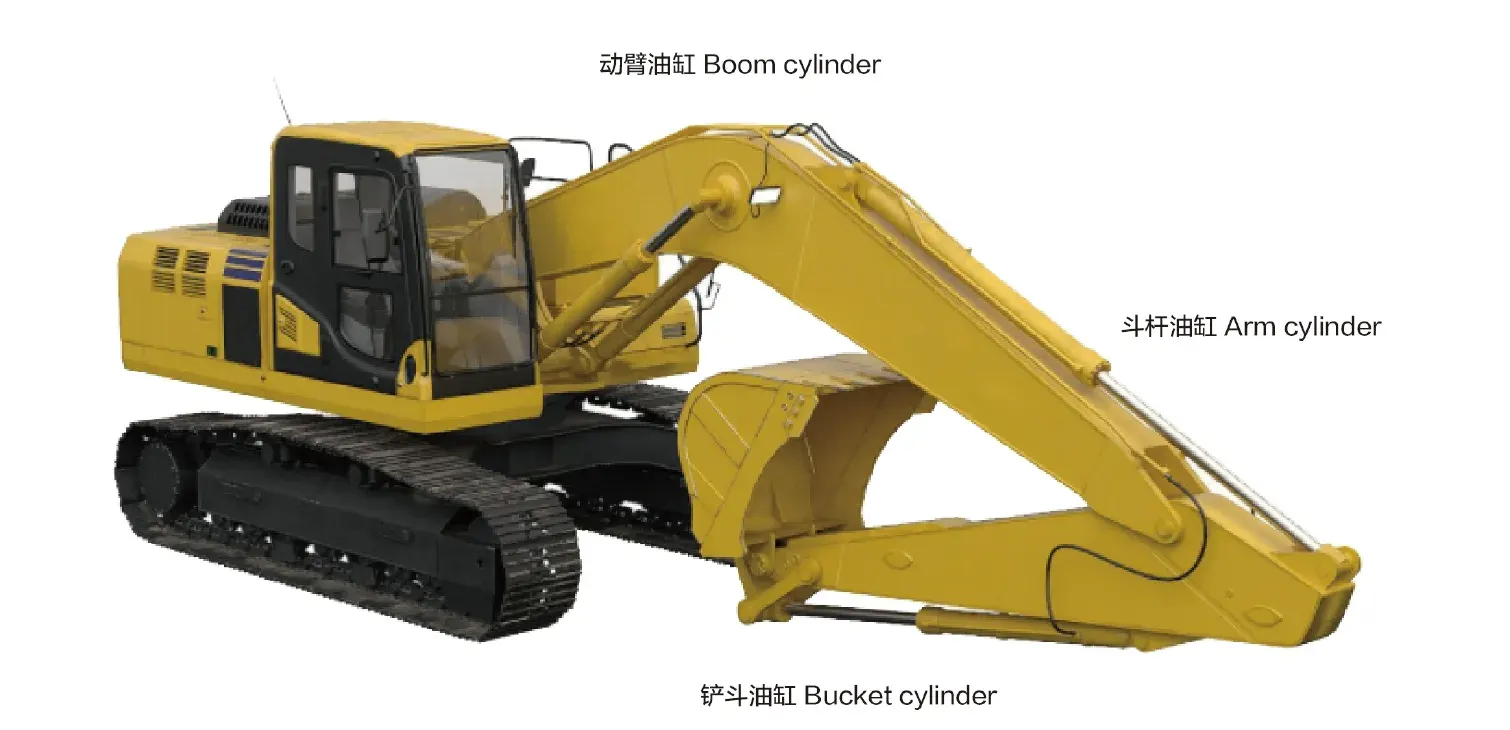
Key Features of the Boom Cylinder
- High Strength and Durability: Constructed from high-strength steel or aluminum, the boom cylinder can withstand high pressure and heavy loads, making it suitable for harsh working environments.
- Efficient Hydraulic Operation: It utilizes hydraulic oil pressure for smooth extension and retraction, responding quickly to operational commands and providing significant pushing and pulling force.
- Variety of Types: Boom cylinders come in single-acting and double-acting variants to cater to different operational needs, with some models featuring telescopic designs for extended reach without increasing external size.
- Corrosion Resistance: Many boom cylinders are designed to resist wear and corrosion, prolonging their lifespan and ensuring consistent performance in various conditions.
- Custom Manufacturing: We produce high-quality hydraulic cylinders that can perfectly replace existing ones, ensuring compatibility and performance.
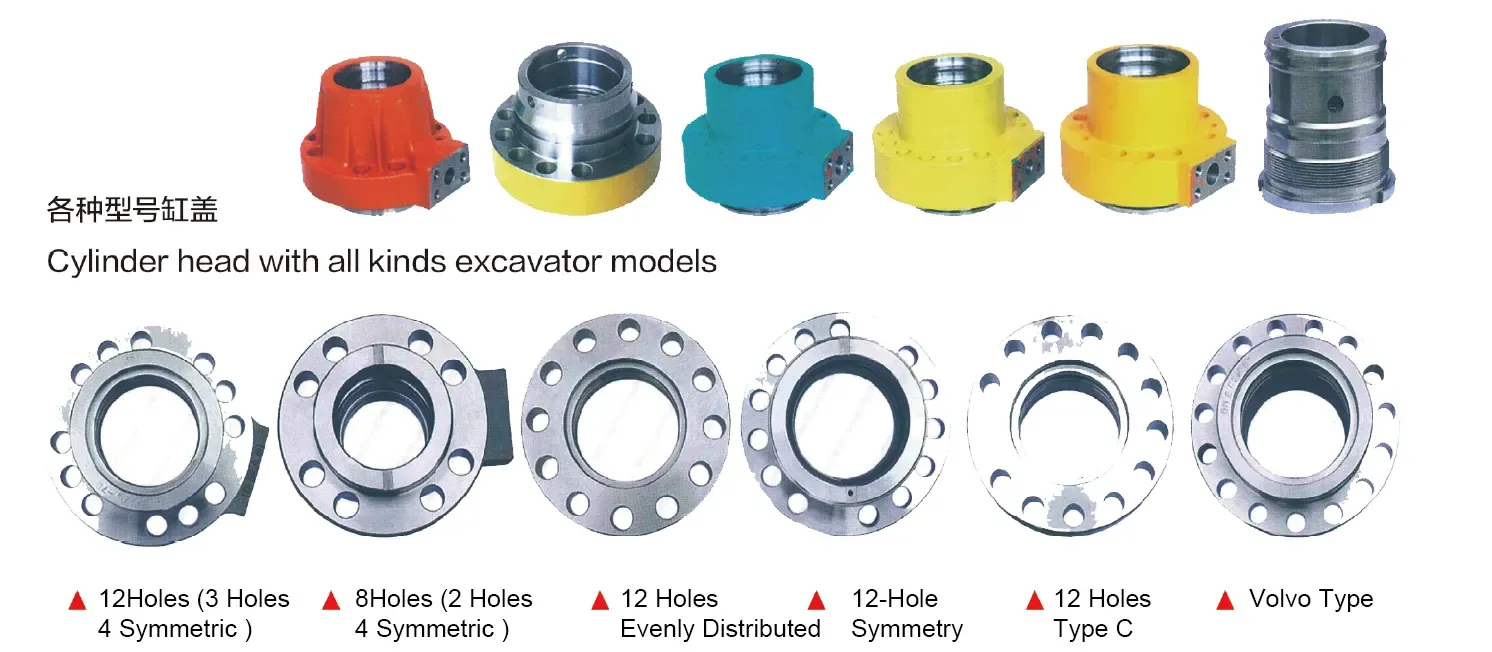
Applications of the Boom Cylinder
Construction Equipment
In excavators, boom cylinders play a crucial role in digging, loading, and transporting soil or debris. They provide the necessary force to raise and lower the boom, enabling operators to perform tasks efficiently. In backhoe loaders, these cylinders assist in both digging and lifting operations, making them essential for versatile machinery use.
Agricultural Machinery
In front-end loaders, boom cylinders are used for scooping, lifting, and transporting materials such as soil, hay, and other supplies. Their design allows for efficient movement and handling of various agricultural products, enhancing productivity on farms.
Excavation Work
The boom cylinder allows excavators to penetrate the ground effectively. By enabling the bucket to dig into the soil, these cylinders are integral to construction, landscaping, and mining projects, where deep excavation is required.
Loading Operations
In front-loaders, boom cylinders facilitate the lifting and dumping of materials. Their strength and efficiency are vital for handling heavy loads, ensuring that materials can be moved quickly and effectively from one location to another.
Design Considerations for Boom Cylinders
Load Capacity
The load capacity of a boom cylinder is a critical design consideration. It must be capable of supporting the maximum weight that the excavator will encounter during operations. A well-designed cylinder will factor in safety margins to prevent failure under unexpected loads.
Sealing and Durability
Effective sealing is essential for preventing hydraulic fluid leaks. This includes the use of high-quality seals made from durable materials like polyurethane and nitrile rubber. Proper sealing not only enhances efficiency but also contributes to the longevity of the cylinder.
Safety Features
Incorporating safety features into the design is crucial for protecting operators and machinery. This includes pressure relief valves and safety locks to mitigate risks during operation.
Maintenance Accessibility
Designing boom cylinders for easy maintenance is important. This allows for quick inspections, repairs, and replacements, minimizing downtime and enhancing productivity.
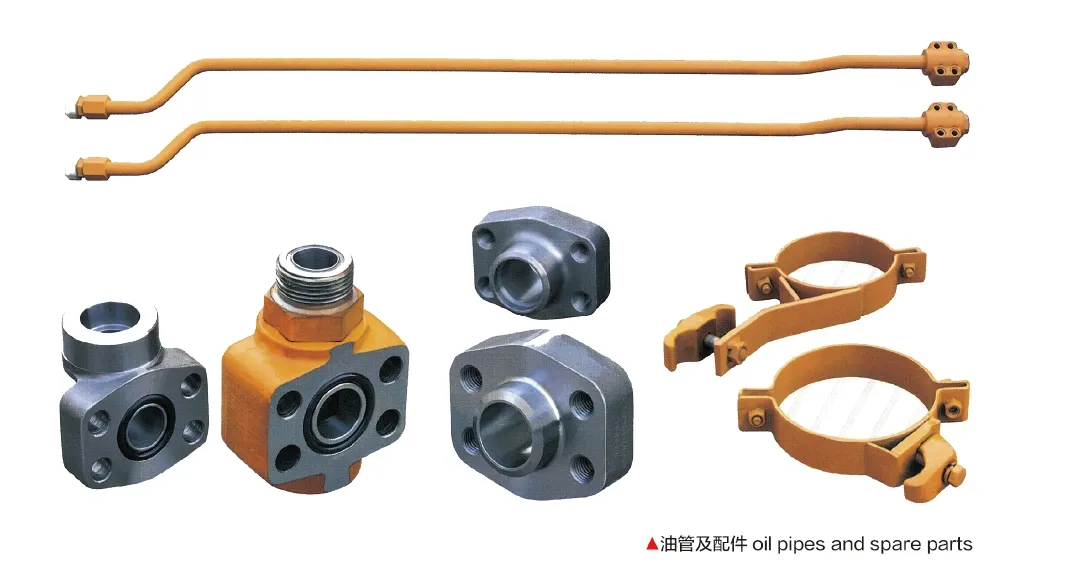
Sealing and Lubrication
Proper sealing and lubrication are vital for the performance of boom cylinders. Various sealing components, including piston seals and rod seals, are utilized to prevent fluid leakage. Seals made from durable materials like polyurethane and nitrile rubber offer resistance to wear. The cylinder body and threaded ends undergo fine machining to increase durability and wear resistance. Regular lubrication with appropriate hydraulic fluid is necessary to maintain the functionality and longevity of the cylinder, ensuring smooth operation and preventing wear over time.
Preventive Maintenance Measures
- Regular Inspections: Conduct regular visual inspections to identify any signs of wear or leaks. Catching issues early can prevent costly repairs and extended downtime.
- Lubrication Checks: Ensure hydraulic fluid levels are adequate and that the correct type of fluid is being used. Proper lubrication minimizes friction and wear on moving parts.
- Seal Replacements: Replace seals when signs of wear or leakage are evident. Regular maintenance of seals extends the life of the cylinder and maintains hydraulic efficiency.
Installation Guidelines
Proper installation of boom cylinders is essential for efficient operation. Begin by ensuring that the cylinder is properly aligned with the mounting brackets. Use appropriate mounting hardware to secure the cylinder and prevent movement during operation. Make sure to connect the hydraulic lines according to the manufacturer’s specifications, ensuring proper flow direction. After installation, check for leaks and test the operation of the cylinder to ensure functionality. Regularly inspect the installation to maintain performance and safety standards.
Common Maintenance Tasks
- Regular Inspections: Routine checks for wear and tear are crucial. This involves looking for any signs of hydraulic fluid leaks, checking the condition of seals, and ensuring the integrity of the cylinder structure. Timely identification of potential issues can prevent major breakdowns.
- Proper Lubrication: Ensure that the hydraulic fluid is at the recommended levels and is the correct type. Lubrication reduces friction and prevents wear, which is essential for maintaining the efficiency of the hydraulic system.
- Seal Replacements: Monitor the condition of seals and replace them as needed. Old or worn seals can lead to hydraulic fluid leaks, compromising the cylinder’s performance and efficiency.
Safety Considerations and Environmental Factors
When working with hydraulic systems, implementing safety measures is crucial. Always follow manufacturer guidelines for operating pressures and load capacities. Proper training for operators and regular maintenance checks are necessary to ensure safety. Additionally, consider the environmental impact of hydraulic fluids and ensure proper disposal methods for any waste materials generated during maintenance.
Troubleshooting and Common Issues
- Leakage: Identify the source of leakage, which often occurs at seals or fittings. Tightening connections or replacing worn seals can often resolve the issue.
- Unresponsive Cylinder: If the cylinder does not respond, check hydraulic fluid levels and look for blockages in the hydraulic lines. Ensuring proper fluid flow is essential for responsiveness.
- Excessive Noise: Noises during operation can indicate low oil levels or air in the system. Bleeding the system and ensuring adequate fluid levels can often rectify this issue.
Taking proactive measures to diagnose and address these issues can minimize downtime and enhance the efficiency of your operations.
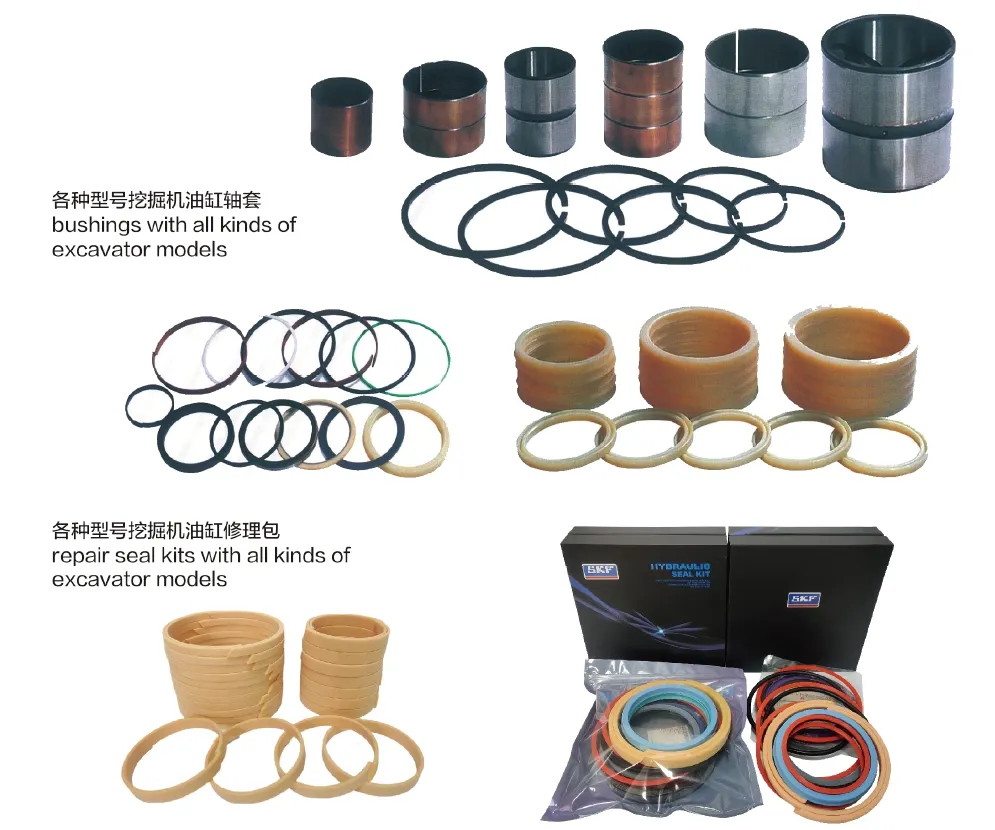
Company Overview
We are a leading manufacturer and wholesaler of hydraulic cylinders, specializing in providing high-quality alternative cylinders for various applications. Our commitment to excellence is underscored by our advanced production management strategies, which leverage skilled personnel and high-end manufacturing equipment. We continuously enhance our manufacturing processes to meet diverse customer needs with efficiency and precision. Our certifications reflect our integrity and dedication to quality, while our custom services ensure that we can meet specific client requirements effectively.
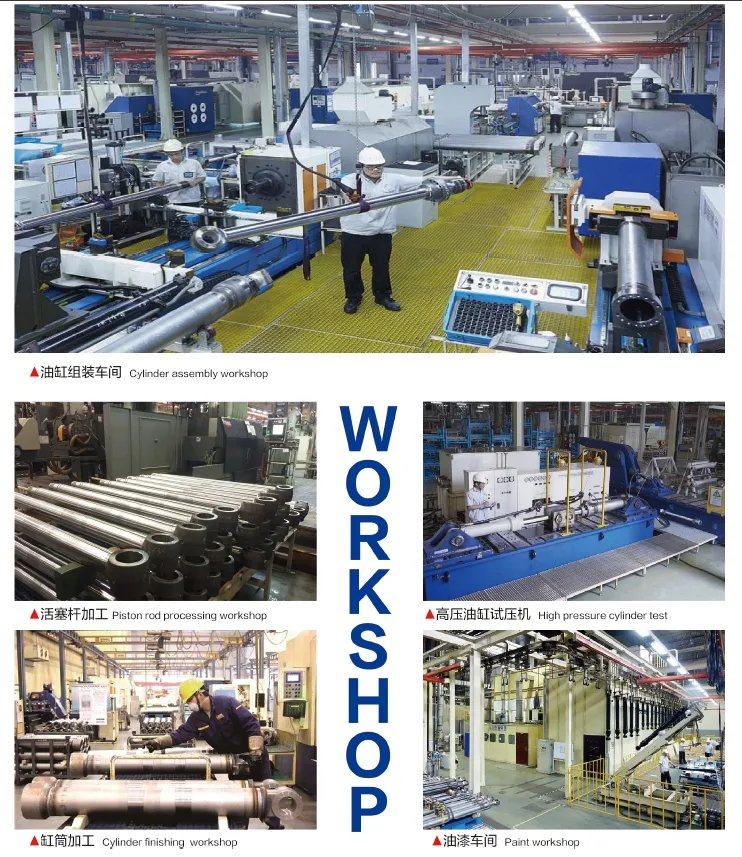
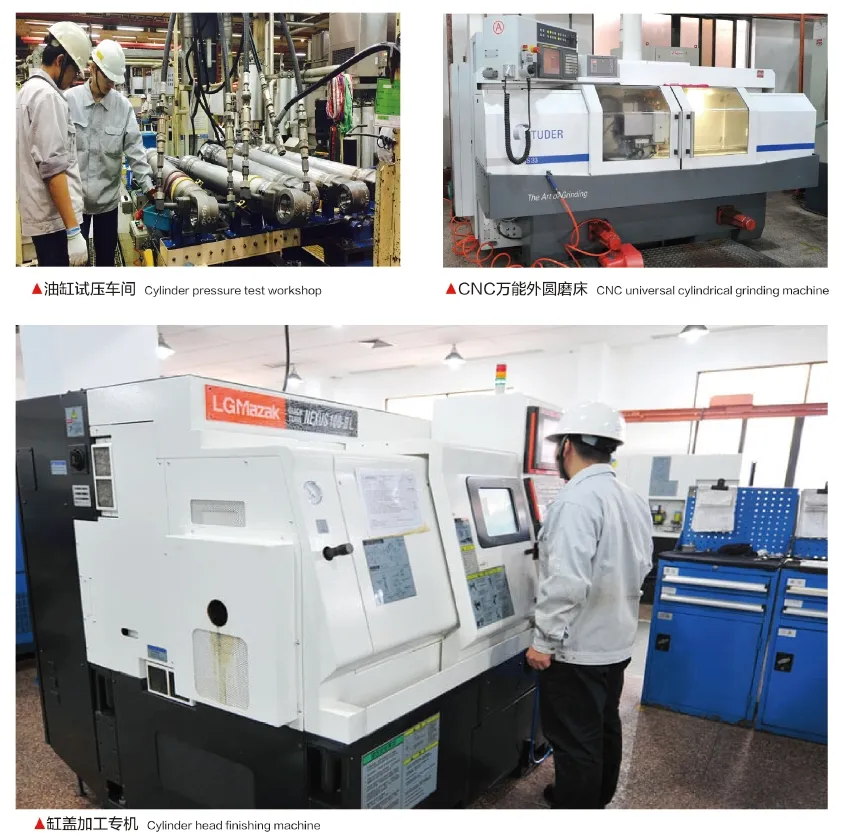
Author: lyl
参观我们的 VR 工厂
通过以下方式参观我们的 VR 工厂
液压缸应用:


